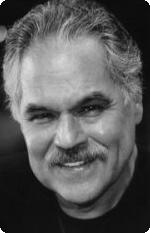March is coming in like a lion, with lots of new releases:
 Already out: Daniel Hernandez Jr. is known as the intern who helped save former Arizona Rep. Gabrielle Giffords’s life when she was shot at a public event in 2011. His book, They Call Me A Hero: A Memoir of My Youth, focuses on his growing up gay and Hispanic. He talked about the book on CNN and to Publishers Weekly.
Already out: Daniel Hernandez Jr. is known as the intern who helped save former Arizona Rep. Gabrielle Giffords’s life when she was shot at a public event in 2011. His book, They Call Me A Hero: A Memoir of My Youth, focuses on his growing up gay and Hispanic. He talked about the book on CNN and to Publishers Weekly.
 March 5: Tito Puente Mambo King/Tito Puente, Rey del Mambo, written by Monica Brown and illustrated by Rafael López, introduces the musician to children. They talked about the book here. In Bird of Paradise: How I Became Latina, journalist Raquel Cepeda investigates her Dominican family’s ancestry.
March 5: Tito Puente Mambo King/Tito Puente, Rey del Mambo, written by Monica Brown and illustrated by Rafael López, introduces the musician to children. They talked about the book here. In Bird of Paradise: How I Became Latina, journalist Raquel Cepeda investigates her Dominican family’s ancestry.
 March 19: In Alex Espinoza’s The Five Acts of Diego León: A Novel, a Mexican peasant goes to Hollywood to pursue a career in the movies. The life of poet Gertrudis Gómez de Avellaneda, who fought against slavery in Cuba as a teenager, is depicted in the children’s book The Lightning Dreamer: Cuba’s Greatest Abolitionist by Margarita Engle.
March 19: In Alex Espinoza’s The Five Acts of Diego León: A Novel, a Mexican peasant goes to Hollywood to pursue a career in the movies. The life of poet Gertrudis Gómez de Avellaneda, who fought against slavery in Cuba as a teenager, is depicted in the children’s book The Lightning Dreamer: Cuba’s Greatest Abolitionist by Margarita Engle.
 March 26: In Meg Medina’s young adult novel, Yaqui Delgado Wants to Kick Your Ass, a teenager finds out she is being bullied by someone she doesn’t even know.
March 26: In Meg Medina’s young adult novel, Yaqui Delgado Wants to Kick Your Ass, a teenager finds out she is being bullied by someone she doesn’t even know.
 March 31: Arte Publico is publishing several books: Hotel Juarez: Stories, Room and Loops by Daniel Chacon, Desperado: A Mile High Noir by Manuel Ramos and Our Lost Border: Essays on Life Amid the Narco-Violence edited by Sergio Troncoso and Sarah Cortez.
March 31: Arte Publico is publishing several books: Hotel Juarez: Stories, Room and Loops by Daniel Chacon, Desperado: A Mile High Noir by Manuel Ramos and Our Lost Border: Essays on Life Amid the Narco-Violence edited by Sergio Troncoso and Sarah Cortez.
Awards:
• Guadalupe Garcia McCall was nominated for the Nebula Award’s Andre Norton Award for Young Adult Science Fiction and Fantasy – given by the Science Fiction and Fantasy Writers of America –for her novel Summer of the Mariposas.
• Rigoberto González received the Barnes and Noble Writers for Writers Award for his work toward his peers.
Book Festivals:
• The Tucson Festival of Books takes place March 9-10 and will feature Diana Gabaldon, Guadalupe García McCall, Reyna Grande, Daniel Hernandez, Juan Felipe Herrera, Lizz Huerta, Ruben Martinez, Matt Mendez, Santino J. Rivera, Gloria Velasquez and Luis Alberto Urrea.
Other news:
• The movie version of Bless Me Ultima is out in theaters. Author Rudolfo Anaya talked to NBC Latino about seeing his book hit the silver screen. Here’s a great review from noted film critic Roger Ebert.
• Benjamin Alire Sáenz, who recently won three awards from the American Library Association Youth Media Awards for his 2012 book Aristotle and Dante Discover the Secrets of the Universe, talked to the School Library Journal.
• A memoir from singer Jenni Rivera, who died in a plane crash last year, is expected to be released in July, according to the Associated Press.
• The Omaha World-Herald profiled Joy Castro, author of Hell or High Water.
• Here’s an interesting New York Times article about Cuban-American playwright María Irene Fornés, the Obie-award winning author of 42 plays, who has Alzheimer’s disease and whose friends are campaigning to move her to New York City so they can visit her.
• The remains of Chilean poet Pablo Neruda will be exhumed to determine if he died of cancer or was poisoned by followers of dictator Augusto Pinochet, according to the BBC.
• NPR had a great story on the Oscar-nominated film, No, which covers the advertising campaign to vote out Pinochet. The movie, starring Gabriel Garcia Bernal, is based on a play by Antonio Skarmeta, author of Il Postino.
• Can’t get enough of Richard Blanco, the Cuban-American poet who read his poem, “One Today,” at President Obama’s inauguration? Here’s a story from NPR.
• PBS’ Need to Know presented a report on Arizona’s ban on ethnic studies.
• Denise Chavez, author of Loving Pedro Infante, is using Kickstarter to raise money for an anthology on border literature and artwork.
• The Makers website profiled Sandra Cisneros.
• Fox News Latino reported on the rise of Latino comic book characters.
• Mexican-American artists Tony Preciado and Rhode Montijo have created a book, Super Grammar, to teach students grammar, according to NBC Latino.
• Junot Díaz is scheduled to appear on The Colbert Report March 25.
Also this month:
• Three Nobel Prize winners – Gabriel Gárcia Márquez, Mario Vargas Llosa and the late Octavio Paz – celebrate birthdays in March.






















